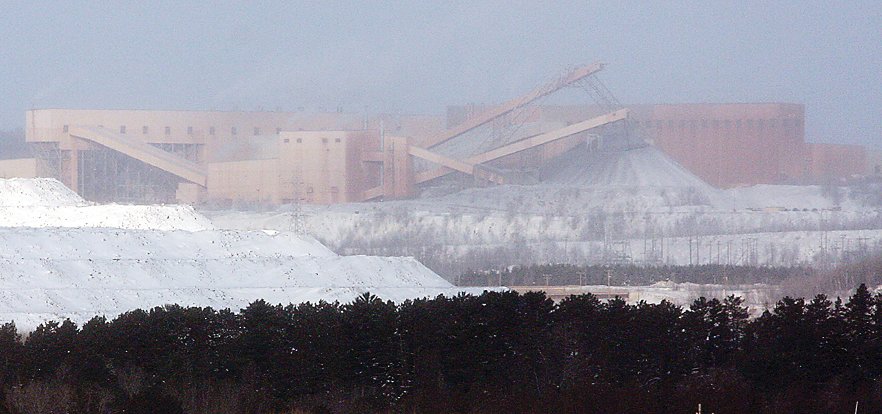Support the Timberjay by making a donation.
State Supreme Court to hear Minntac case appeal
REGIONAL— The Minnesota Supreme Court has agreed to hear an appeal that could ultimately require U.S. Steel to clean up pollution the company currently discharges into groundwater …
This item is available in full to subscribers.
Attention subscribers
To continue reading, you will need to either log in to your subscriber account, or purchase a new subscription.
If you are a current print subscriber, you can set up a free website account and connect your subscription to it by clicking here.
If you are a digital subscriber with an active, online-only subscription then you already have an account here. Just reset your password if you've not yet logged in to your account on this new site.
Otherwise, click here to view your options for subscribing.
Please log in to continue |
State Supreme Court to hear Minntac case appeal
REGIONAL— The Minnesota Supreme Court has agreed to hear an appeal that could ultimately require U.S. Steel to clean up pollution the company currently discharges into groundwater from the Minntac tailings basin north of Virginia. The appeal, filed by Duluth-based Water Legacy and the Fond du Lac Band of Ojibwe, will reconsider a decision issued in December by the state’s Court of Appeals, that found that the Minnesota Pollution Control Agency lacked authority to regulate groundwater pollution emanating from the tailings basin.
In the end, the Court of Appeals threw out the wastewater discharge permit issued to Minntac by the MPCA in December 2018 and remanded it back to the agency for further proceedings.
U.S. Steel opted not to appeal the ruling, which ensures that portions of the appellate ruling that favored Water Legacy and the Fond du Lac Band will stand.
But other portions of the ruling prompted environmentalists and tribes to ask the high court for a second look. Among the issues of concern to litigants is the appellate court’s determination that the MPCA erred when it required U.S. Steel to comply with a 250-milligram-per-liter federal drinking water standard for sulfate. While the federal drinking water standard does limit sulfate levels to 250 mg/l, the court determined that the federal standard did not apply and was therefore enforced by the MPCA in error.
The court also found that polluted groundwater that emanates from under the basin and enters the Sand and Dark River watersheds was not subject to regulation under the Clean Water Act even though it was “hydrologically-connected” to those surface waters. While the Court of Appeals sided with Water Legacy and the Fond du Lac in other portions of their ruling, the two decisions on groundwater contamination were a clear victory for U.S. Steel.
The question of whether groundwater is subject to that federal law has been a controversial one in the courts for decades and a landmark case out of Hawaii, which the U.S. Supreme Court heard last fall, is expected to clarify that issue later this year. The Minnesota appellate judges appeared content to err on the side of caution pending that decision and determined that the federal clean water law does not apply to groundwater. Any decision by the state’s high court will likely come after a decision in the Hawaii case, and will likely be guided by that federal ruling.
“This is a big deal,” said Paula Maccabee, head legal counsel for Water Legacy, commenting on the court’s decision to hear the case. The Supreme Court typically agrees to hear only about five percent of the cases that are offered by litigants.






